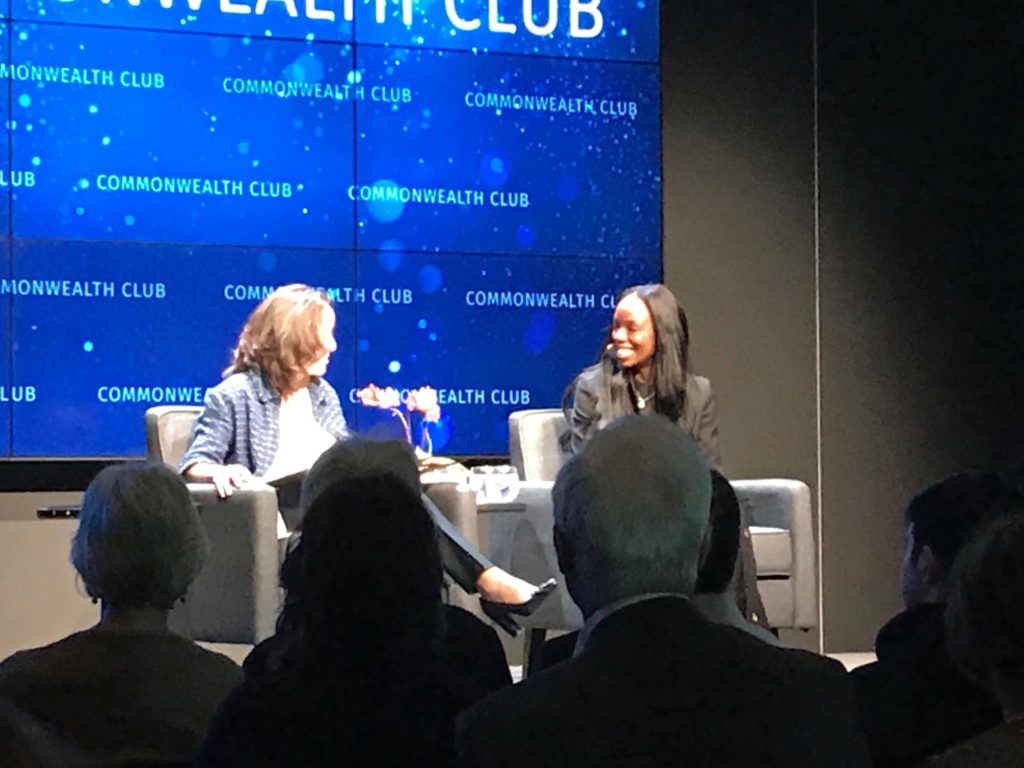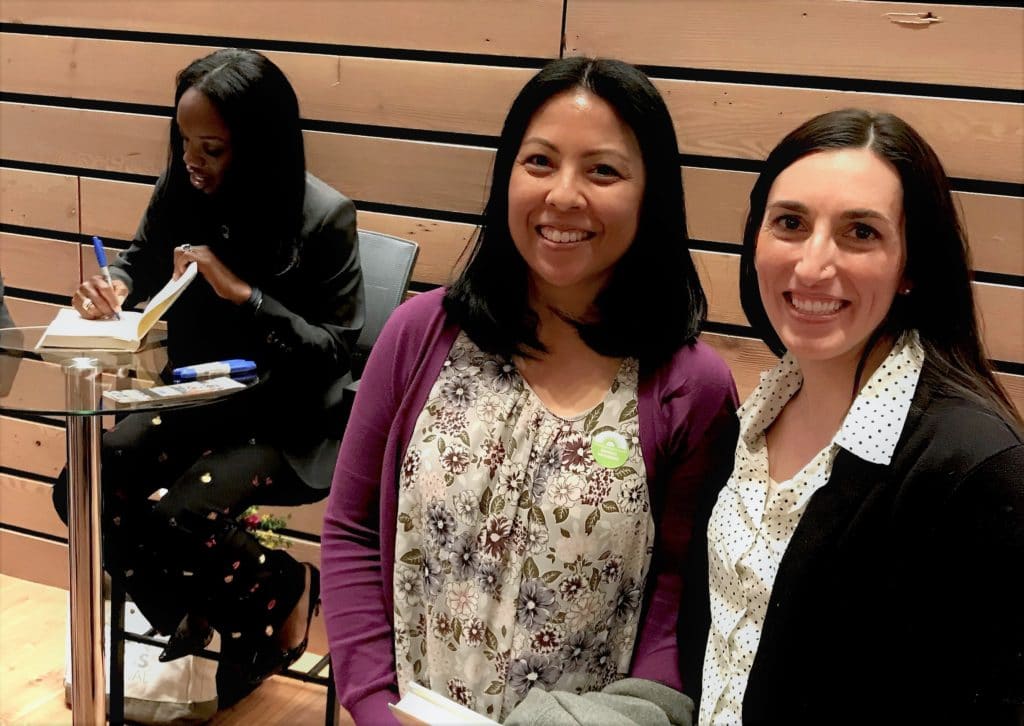Road Trip Toward Healing Childhood Adversities

The work of Dr. Nadine Burke Harris was influential in Aging UP’s program development. Her TED talk, which has been viewed more than 3 million times, was also part of Mentor Training. So, it was no surprise when our founders drove nearly 100 miles to see Dr. Burke Harris speak about her research-based practice on healing the long-term effects of childhood adversity.
On March 27, at the Common Wealth Club in San Francisco, Dr. Burke Harris addressed her new book, The Deepest Well, which chronicles her journey of understanding the negative effects of toxic stress in the health of her patients.
Though there is a lot of science, Dr. Burke Harris’ friendly style explains toxic stress, or adverse childhood experiences (ACEs), in an understandable manner. We encourage you to read the book and offer the following summary as a start.




While working as a pediatrician in an under-resourced San Francisco neighborhood, Dr. Burke Harris began wondering if health issues of her young patients were impacted by traumatic experiences. A combination of knowledge from her medical and public health degrees along with her natural inquisitiveness sent her searching for an answer. Thankfully someone shared a 1998 study by Kaiser Permanente and the Centers for Disease Control on how ACEs have lasting effects on an individual’s health.
ACEs include physical, emotional, and sexual abuse; physical and emotional neglect; parental addiction, mental illness, incarceration, divorce and domestic violence.
This study found that ACEs are common – 67 percent of the population had at least one category of ACE and 12.6 percent had four or more categories of ACEs. The higher a person’s ACE score, the greater their health risk. A person with four or more ACEs is twice as likely to develop heart disease and cancer and three and a half times as likely to develop chronic obstructive pulmonary disease (COPD) as a person with zero ACEs.
Unlike Dr. Burke Harris’ pediatric patients from lower-income, high-crime environments, the original ACE study was conducted in San Diego. The population was 70 percent Caucasian, 70 percent college-educated and 100 percent had access to quality medical care. This means ACEs are a risk factor for many common and serious diseases, regardless of income, race or access to care.
This was the information Dr. Burke Harris needed! After years of seeing children because of behavioral, breathing and other physical issues, she conducted an ACE study with her patients. Results mirrored the original study with 67 percent having one category of ACE and 12 percent who experienced four or more ACEs.
This ACE study lead to the discovery that children with four or more ACEs are twice as likely to be overweight or obese and 32.6 times as likely to have been diagnosed with learning and behavioral problems. Finally, there was proof that toxic stress literally changes the brain, body and even our DNA!
ACEs interfere with the healthy development of the stress response system – too much stress hormone, especially on a developing child, creates the recipe for long-term health issues. Everyone is born with a stress response system, designed to keep us safe in dangerous situations. Think fight or flight. There are three stress responses: positive stress, tolerable stress and toxic stress.
Positive stress is how we handle everyday stresses. The stress hormone releases enough to get us through, then the body naturally regulates to normal. This can happen when taking a test. Tolerable stress is a scary experience, like an injury or natural disaster. The presence of a caring adult (often a parent) helps calm the response and build resilience. Toxic stress, however, occurs when people are exposed to severe and/or lasting stress (ACEs). For instance, a child who lives in an environment with domestic violence, gets overwhelmed by the stress hormone on a regular basis. This leads to lifelong issues with mental and physical health and behavior.
Unfortunately, an overwhelmed stress response is all-too-common for youth in foster care. However, not all is lost! Dr. Burke Harris advocates early intervention by improving outcomes through six buffers: sleep, nutrition, exercise, mental health, healthy relationships and mindfulness.
Aging UP provides youth from foster care with several of these buffers. One-to-one mentoring provides healthy relationships. Our Group meetUPs provide stigma-free environments where youth can just have fun, enjoying physical activities and exercise. UPshop topics include healthy nutrition, exercise, and mindfulness, along with other necessary independent living skills.
We are proud to offer some means to buffer toxic stress and we’re so grateful to our mentors for the positive role they serve in the lives of their mentees.




